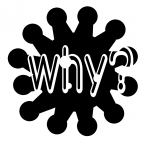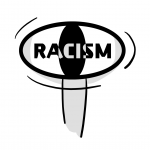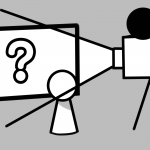WARNING: THIS ARTICLE CONTAINS SPOILERS FOR “ENOLA HOLMES.”
“Enola Holmes” has been on the mind of much of the world’s moviegoers these past several days.
An adaptation of the first novel in Nancy Springer’s mystery series of the same name, the film was released Sept. 23 to critical aplomb, debuting at No. 2 on Netflix’s Daily Top 10 and rising to the No. 1 slot within only a few days. As I write this now, it has been in the top five since its release.
Boasting a 92-percent tomatometer on Rotten Tomatoes, critics call it “a breath of fresh air to Baker Street,” while Ann Hornaday of The Washington Post describes it as a “brisk and exuberant escape from the heaviness of modern times.”
“Escape” is perhaps too strong a word for my liking. The film follows Sherlock Holmes’ teenage sister, Enola, as she investigates the disappearance of their mother. The film endeavors to keep a vivacious tone not dissimilar to that of the Arthur Conan Doyle novels on which it was based.
But the sheer fact that its protagonist is a daring, witty detective who is in every way as naturally talented as her famous older brother, born in a time and place where that was not expected of individuals of her class and gender, renders it almost incapable of creating some sort of commentary on that time and place.
Rather than running from that, however, “Enola Holmes” leans into it. In doing so, it provides not only a powerful feminist message, but a message on what it means to have power both on an individual level and in the broader context of society. That is more than applicable in the modern day.
Though Enola shares many traits with her brother — both have the same analytical mind with talents in science, combat and disguise, as well as the same determination to solve mysteries — their motivations come from fundamentally different places.
While Sherlock is famously detached from people, taking cases only as they interest him, Enola is almost passionately committed to helping others, especially those who cannot help themselves.
Upon getting entangled with the Viscount Tewkesbury, a young nobleman whose outspokenly liberal views have placed him in the crosshairs of his conservative family, Enola is at first more than willing to abandon him, preferring instead to focus her efforts on finding her mother.
However, before long, she begins trying to track him down in the hopes of helping him escape the assassin his family has sent after him. Her explanation for this, which I’ve abridged below, does an excellent job of capturing what I believe to be the heart of the film:
“The truth is, I did not ask for the Viscount Tewkesbury … in my life. I did not want the Viscount Tewksbury … in my life. So why do I feel responsibility for [him]? Because there are those that want to hurt him, and he has not the strength to stop them, and I do have that strength.”
“Enola Holmes” presents a simple, age-old conundrum: there are those with power, and those without it. Though the film does not attempt to resolve this conundrum, which arguably rests at the heart of modern politics, it does present one potential avenue for resolving it: those with power, wherever it may lie, should use it to help those without.
This message is continually repeated. For example, Enola helped Tewkesbury survive when he otherwise would have been killed, and Tewksbury used his seat in the House of Lords to pass a motion extending suffrage to all men. And though it is repeated primarily in the context of Victorian England, I believe it applies quite strongly today as well.
Though we’ve come a long way since the era “Enola Holmes” shows us, we still live in a time of great inequity — in some ways greater than the era our parents lived in.
More and more wealth is being concentrated in the hands of fewer and fewer individuals, and race- and gender-based discrimination continue to run rampant in nearly every facet of society. It varies in practice, but the nature of inequity results in one common fact: some have power, and some do not.
While it may be all too tempting, and perhaps even easy, for those with power to hold onto it and horde it exclusively for themselves, doing so will not make the world more just. We don’t choose what powers we’re given, but we can choose, time and time again, to use them to help others. Only then will we be able to create a more just and free world.




